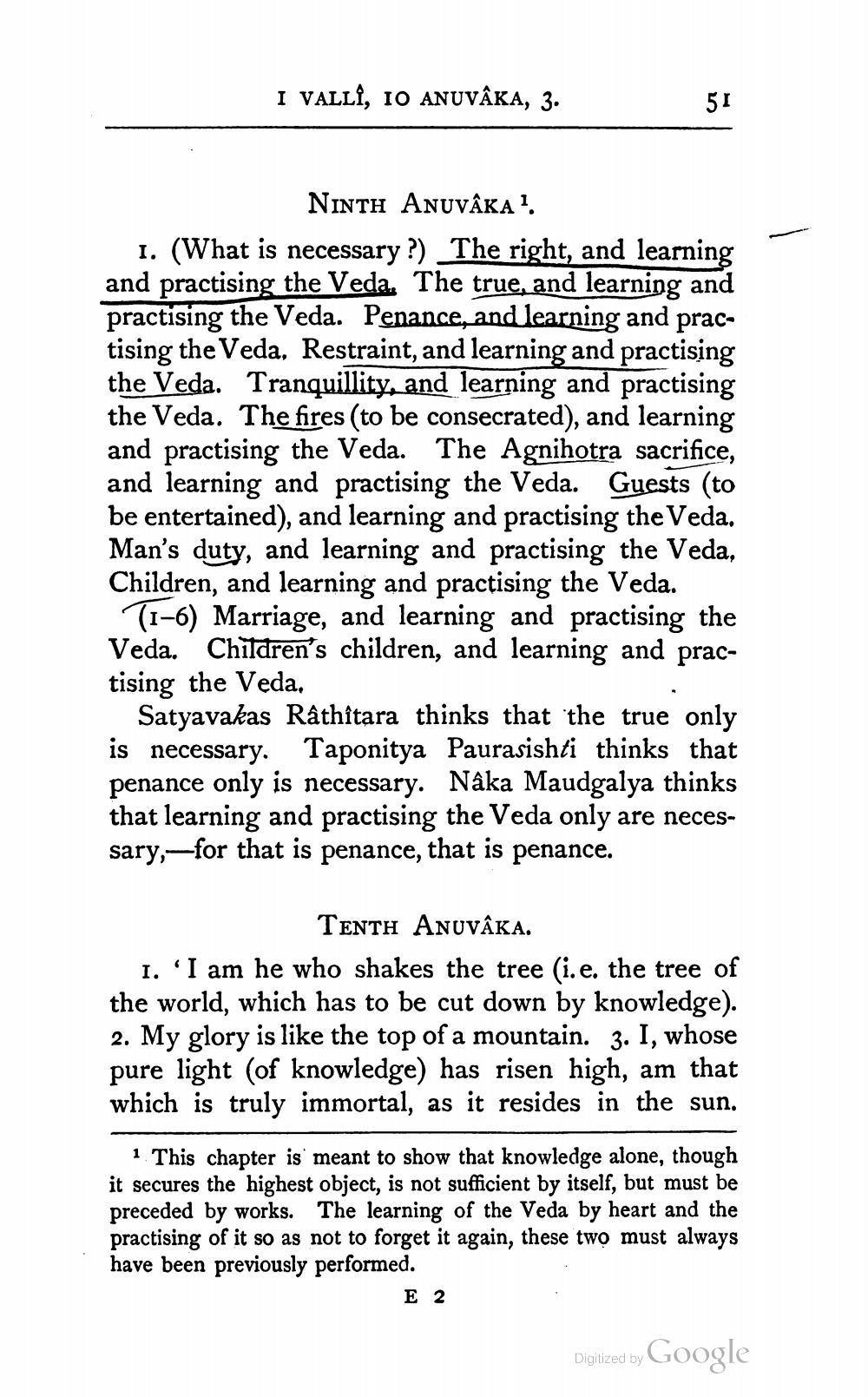________________
I VALLI, IO ANUVÂKA, 3.
NINTH ANUVAKA1.
1. (What is necessary?) The right, and learning and practising the Veda. The true, and learning and practising the Veda. Penance, and learning and practising the Veda, Restraint, and learning and practising the Veda. Tranquillity, and learning and practising the Veda. The fires (to be consecrated), and learning and practising the Veda. The Agnihotra sacrifice, and learning and practising the Veda. Guests (to be entertained), and learning and practising the Veda. Man's duty, and learning and practising the Veda, Children, and learning and practising the Veda.
(1-6) Marriage, and learning and practising the Veda. Children's children, and learning and practising the Veda.
51
Satyavakas Râthîtara thinks that the true only is necessary. Taponitya Paurasishti thinks that penance only is necessary. Nâka Maudgalya thinks that learning and practising the Veda only are necessary, for that is penance, that is penance.
TENTH ANUVAKA.
I. 'I am he who shakes the tree (i. e. the tree of the world, which has to be cut down by knowledge). 2. My glory is like the top of a mountain. 3. I, whose pure light (of knowledge) has risen high, am that which is truly immortal, as it resides in the sun.
1 This chapter is meant to show that knowledge alone, though it secures the highest object, is not sufficient by itself, but must be preceded by works. The learning of the Veda by heart and the practising of it so as not to forget it again, these two must always have been previously performed.
E 2
Digitized by
Google




